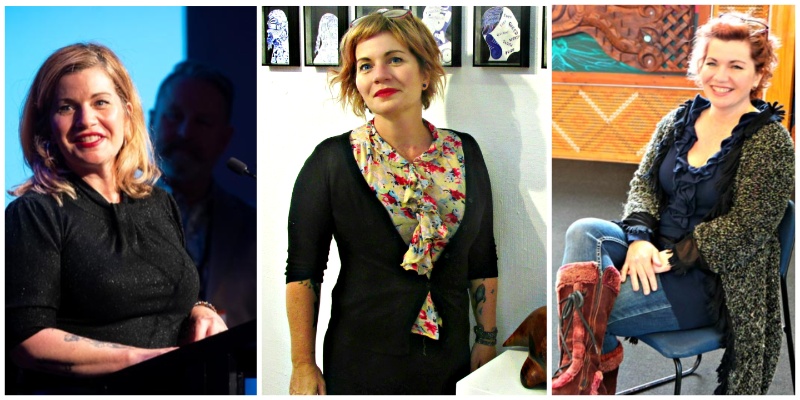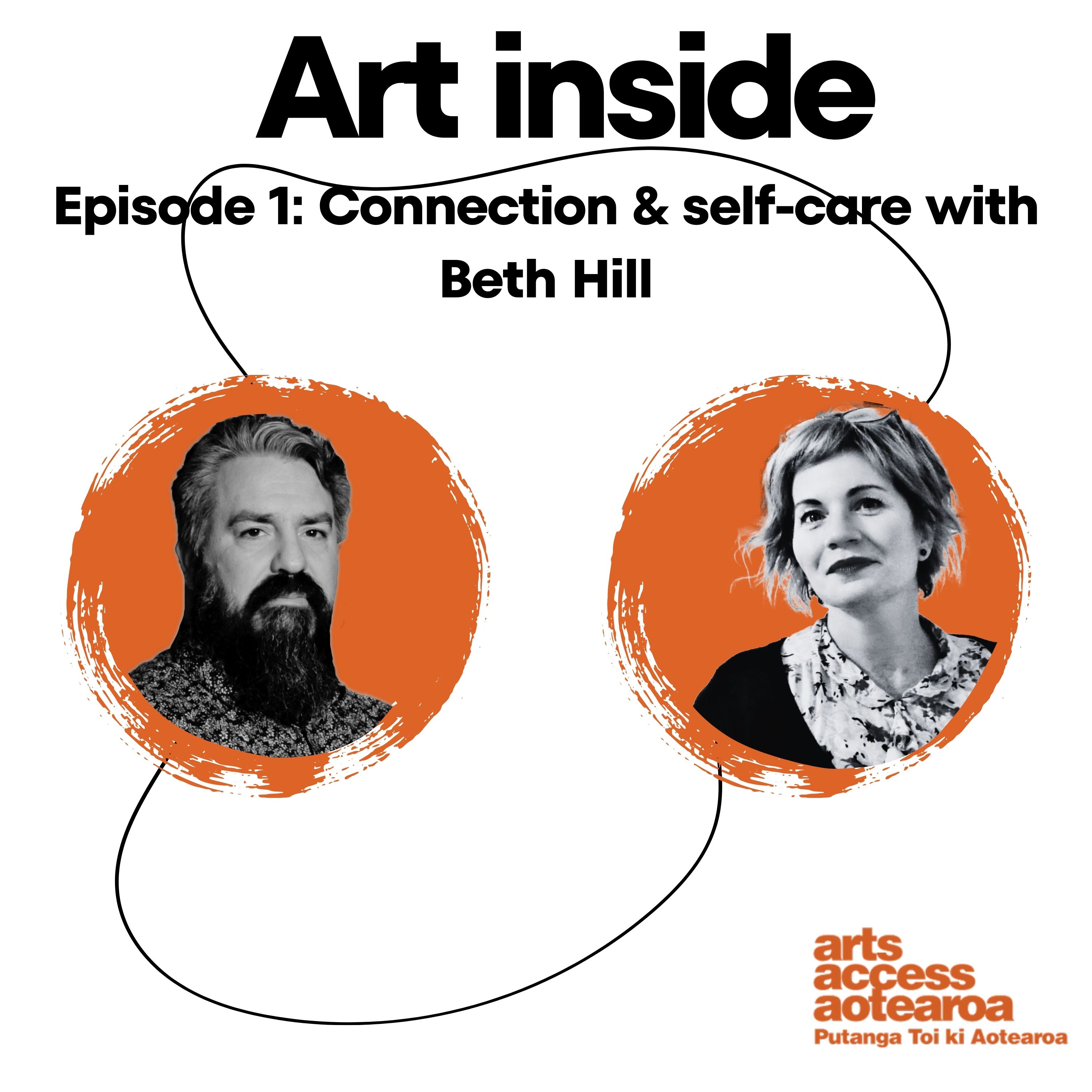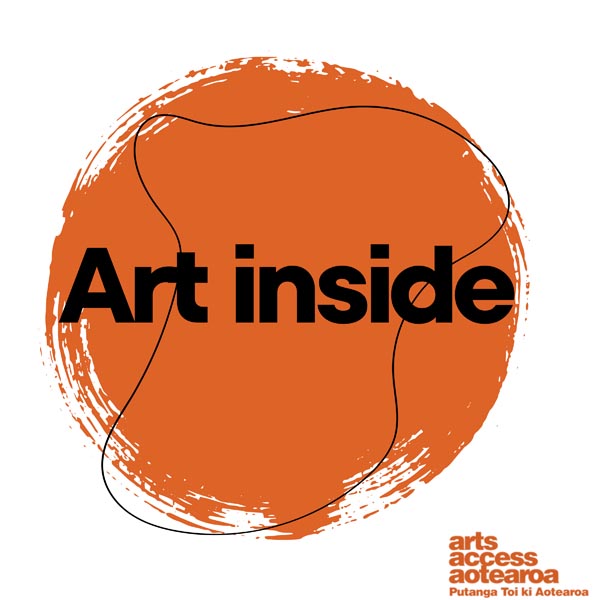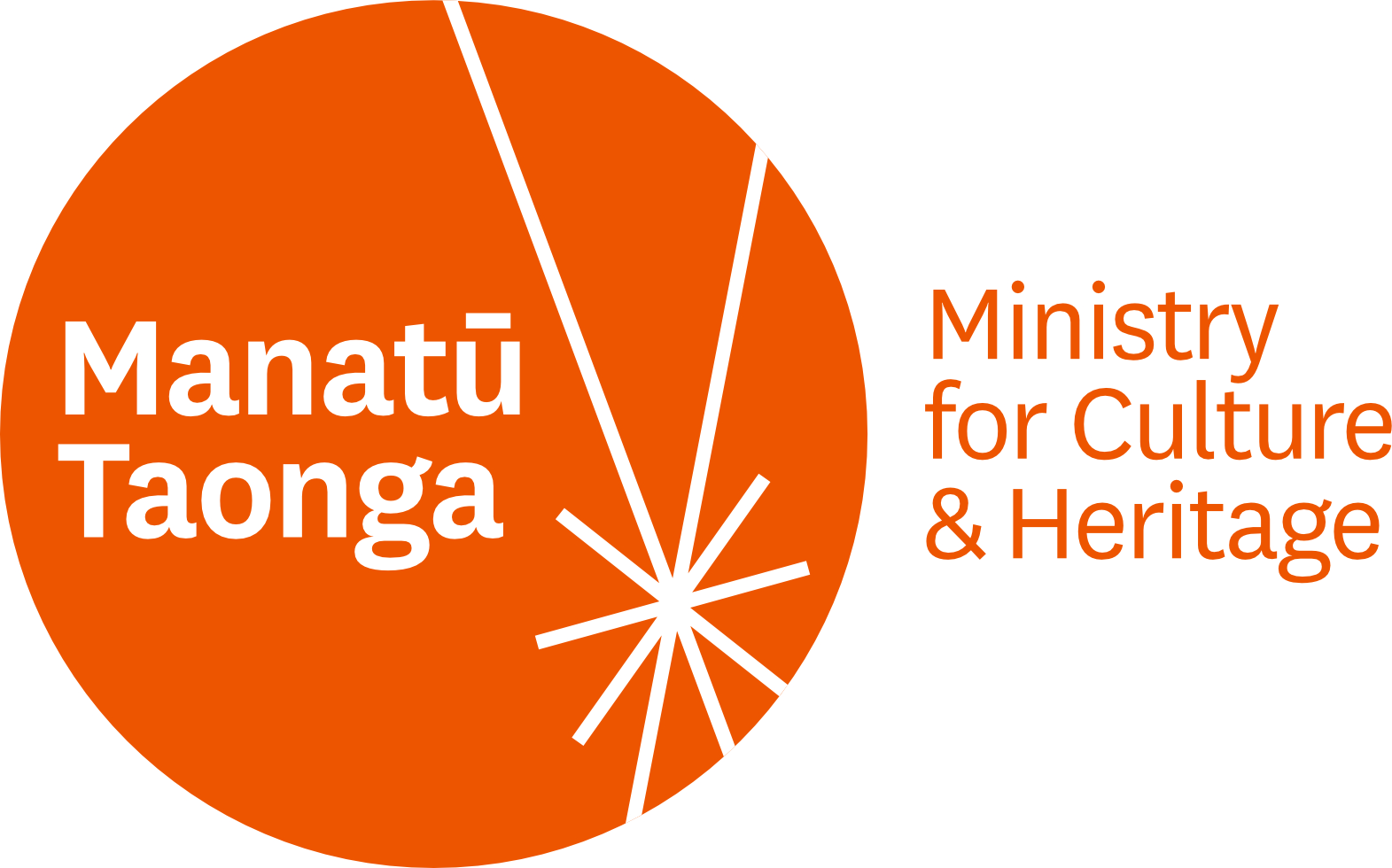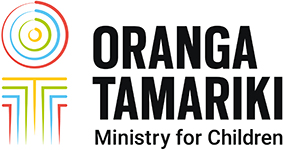Episode 1, Art Inside
Connection and self-care with Beth Hill
Transcript
Neil Wallace:
Welcome to Art Inside, a seven-part audio series, brought to you by Arts Access Aotearoa. The arts – painting, music, whakairo, dance, writing, kapa haka, theatre – connect and heal us. They help us see the world through each other's eyes. They teach us creative problem-solving and innovation, which we can apply to the many layers of our lives.
In this series, we meet artists who teach arts to people in New Zealand prisons. We also meet former prisoners whose lives have been transformed through the arts. My name is Neil Wallace and I'm the Kaiārahi a Toi Ara Poutama mo Putanga Toi Ki Aotearoa - the Arts in Corrections Advisor for Arts Access Aotearoa.
Haere mae and welcome. Please join us on this hikoi to better understand arts inside.
In this episode, we meet Beth Hill , an arts tutor at Northland Region Corrections Facility with more than 10 years’ experience bringing the benefits of the arts to the tāne up there in the far north.
Kia Ora, Beth. Kei te pehea koe?
Beth Hill:
Ke te pai, Neil.
Neil Wallace:
Great to have you with us today. Thanks so much for sharing your time.
Beth Hill:
You're so welcome.
Neil Wallace:
Well, let's start at the start. Let me ask you, how did you end up as an art tutor at the Northland Region Corrections Facility?
Beth Hill:
I suppose I should start by saying that I've always been a lover of the arts and when I was at school, it was the one thing that I was good at, and unfortunately, I was expelled from sixth form college and had to go and work to pay my rent. So, I spent years working in loads of different types of jobs, and sadly, I got a phone call from my dad, and he told me he was dying of cancer, and I went to visit him. I think he was a bit worried about me and he said, you know, you need to go and revisit the arts. It's where you shine. And so I looked up art degrees and I applied to do my degree. I took a little portfolio of some artwork along and they accepted me, and I was so excited. At the end, Sandra Harvey from Ngawha, was looking for somebody to come in and work with her and she said, are you interested? And I was just straight away like, yes.
So I went in and visited and I spent a good two or three hours in the art room, and I was so overwhelmed that when I left, I cried in the car and that was the start for me. And that was back in … I think it was 2013. So that was how I ended up at Ngawha.
Neil Wallace:
Wow. That's some journey. Thank you so much for sharing it.
Beth Hill:
Oh, you're welcome.
Neil Wallace:
Can you tell me about what it takes to work in prisons?
Beth Hill:
I mean, it's such challenging work. I'd say, first of all, patience. I'm not a patient person by my nature. I'm a very busy person, and so having to learn to slow down … and understand that it's a large organisation with lots of different people with lots of different roles. To get anything happening, you've got to get everybody on to the same page as you.
And one of the things that that also means is that you've got to be able to be a really clear communicator and be good at keeping communication up with massive amounts of people – from the tāne that I work with who come to my classes to case managers, custodial staff to managers, and it's quite hard to juggle all those balls. So being quite organised is a good thing. And if you are not having people who can assist you with that, and I do have someone who works for me, Scott, who is probably the most organised person on the planet. So that's something that's pretty important.
You've got to be flexible. Flexibility's a massive thing because things can change onsite in a moment. It could be that there aren't enough staff to assist you. It could be the unit is shut. We've had Covid that has had a massive impact. So flexibility is really important. It's understanding that because things can take a while to happen, you've got to allow for a larger amount of time in your day to deliver what you are expecting to do.
So I tend to get to work quite early so that I've got time to plan and make sure that everything that's supposed to happen can. So that's important. And then the other massive thing is empathy. You've gotta have huge amounts of that and be compassionate and understanding.
Neil Wallace:
That's really, really interesting. Beth, you say you went in there and you wouldn't have had your assistant to start with and you would've been learning who was who in that space and how it all works. What was that like for you?
Beth Hill:
If you're a good communicator, then it's fairly easy. But navigating all the different roles and understanding what people do, it is hard.
It's understanding that some people will be singing from a different song sheet. So, for example, a case manager, their role's massive. They have to look after everything to do with the tāne that I'm teaching . So they have to ensure that their sentence plan is mapped correctly, and that fitting the arts in is something that's actually going to be beneficial to the tāne I'm working with, and that it doesn't interrupt maybe a criminogenic programme.
So sometimes relationships with case managers, if you get it wrong at the beginning, it can take a little while to earn that trust again.
For me, at the beginning, it was easier as well because I was working for Sandra back then and so I had a boss, you know, essentially that I could go to and say, am I making, you know, the right moves here? Is this really what you want me to achieve? Is this something that's possible? Once I started working for myself onsite and running the programme, it was a little bit harder because sometimes you can be quite isolated in that role, and until I then was able to start employing people to support me, I worked a lot of hours just to build the programme and increase the hours that were available.
Those are the kind of things that can be problematic as someone who doesn't belong to a big organisation. For me, it was a little harder working independently and not necessarily having supervision, for example, to ensure that. You are looking after yourself as well as the tāne and not having people to unpack problems with.
The nature of the work is very confidential. We have a code of conduct, and we have to respect the confidentiality of our students, but also, it's the victims of crime that we've got to keep in mind all the time when we are doing our work. So there's a huge amount of legislative stuff as well as being compassionate to all involved that we have to think about.
So I think there are times when I know I would've benefited from having people to talk about things with, and now I do. It's so much better for me.
Neil Wallace:
It's really fascinating. If it's okay, I'm just going to ask a little clarifying question and then dive back into this. We spoke originally about the Northland Regional Corrections Facility, and I just wanted to clarify that that is also known as Ngawha Prison.
Beth Hill:
Yes. Sorry, everyone. We all call it Ngawha, but obviously Ngawha is actually a settlement and a community. The prison is there, so yes, that is why we call it Ngawha.
Neil Wallace:
All good. Now, you said Sandra was your boss when you first started. Could you clarify that role for us?
Beth Hill:
Yeah, so Sandra Harvey was actually my glass tutor at North Tech, and she's someone that I had known for a number of years.
And then unfortunately, Sandra took sick and was unable to continue with her role as the contracted provider for the arts, and that's how I ended up stepping in and taking over that contract.
Neil Wallace:
Okay now, you've obviously had to align and grow, and I just want to hear about what it takes to do this role and what changes have occurred in you that have helped you along the way?
Beth Hill:
It is hard 'cause I do know that for some people, it's very challenging to think of people who are in prison having fun because by the very nature of them being placed in prison, there's this understanding that people should be miserable and unhappy. But prisons and corrections facilities are places of rehabilitation and relearning and reconnecting and re-engaging. One of the things that the whole of society and communities have a responsibility to do is to empower people in the care of corrections to reconnect in that way.
I've worked with so many people who'd forgotten how to laugh, had forgotten how to find joy in anything. And once you see a fully grown man who's so unhappy and so miserable, filled with shame and guilt and disconnection, once you see them, you know, playing a silly game and roaring with laughter and connecting with the other people in the group, it's magic.
Sometimes, I do believe, that moments of joy can extend into long periods of happiness and wellbeing, and really, wellbeing is essentially what creativity in corrections ... that's what it's all about.
Neil Wallace:
One of the main things people say about the arts is that you have to be poor and hungry and struggling. The struggling artist. And so, you speaking of joy and all of those remarkable transformational things you've just shared with us, what does art really bring to the party?
Beth Hill:
Curiosity it brings. That's probably the most important thing. So often the tāne I work with have come very often from impoverished backgrounds. They've been impacted enormously by issues within their communities, drugs, alcohol, and when we give them the opportunity to be curious, but also provide a safe space to do that, where everybody who's in it is working from the same page, is understanding that sitting in that space together, we can talk freely. Or they can just sit quietly, you know, and read or draw or dance or sing, that it's safe to do so because without that safety, the arts can be perceived as being really dangerous because they, you know, by the very nature of the arts, we protest, we advocate, we want to make change. So by creating safe, artistic and creative spaces within corrections facilities and prisons, we empower the tāne and wāhine that work within them to start viewing the world through a different lens – as I keep saying, safely. So that they don't feel at risk.
But also, the magic thing is that we enable and empower them to take risks and those risks and that adrenalin and the endorphins that start flowing as a part of that process can replace the previous things where risk-taking was part of an everyday life.
Participating in the arts does that for all of us. It's that moment of when you share something you've made, that's a really important key part. Safe, creative risk-taking.
Neil Wallace:
Healthy outlets to challenge what's wrong in society. I think that's absolutely on point and paramount. I think it's something that you are clearly expressing, and it is, from my position, crucial.
Beth Hill:
I had a conversation with one of the drug and alcohol facilitators yesterday, and we were having a conversation about something very different about people taking drivers tests and he said, “Everyone in the class, have you got a drivers licence?” Some put their hand up, some didn't.
And he said, “Well, that's great. Let's look at you ensuring that your young people then get drivers licences.” And the impact of that was not what he expected. I think the tāne felt a little bit affronted by that, and we were discussing it and he asked me why did I think that was, and I said, I think it's a fear of giving time because they're still caught up in a space where time is used for the things that are negative in their life. And if you have to think about giving time up to do something that's positive, that's going to benefit their family or even themselves, it's a really hard thing to do. By giving the tāne and wāhine a time slot to give themselves the opportunity to create, make, think, engage, is good training for on the outside because then maybe when they're out there and they're trying to find work and they're trying to feed their families and they're trying to pick up and put their lives back together, it's quite hard to identify when they need time for themselves or how to give time to others constructively.
I think that participating in arts programmes gives the understanding that how important that is, that time to sit and to learn, maybe even how to share that with somebody else and give them the joy. So, it's learning to give something, it's a real gift. The foundations of the programme are for us, for myself and the tāne, it's always whānau, love , empathy and gift. And the gift element is that we always talk about who are we making this for? And very seldom will the tāne say themselves. It's always going to be, I'm making this for my child, I'm making this for my mum, my best friend.
And when I talk about gift, it's about honouring as well. So, we're honouring maybe those that have passed on. Or those that have had a huge influence because not all the guys have somebody that they necessarily have as a support person. But everybody, we all will have had some person in our life that's inspired us or someone that we want to say thank you to.
And even if they passed on or we don't even know where they are, if we carry them in our hearts when we are making the work, it adds value to it and meaning.
Neil Wallace:
Self-care. What it seems that you're describing is the facilitation and the teaching to the tāne in the care of Ara Poutama self-care, and how to take that time for themselves to be able to establish resilience and cushions of time that everybody needs but not everybody takes. So, can I ask, what is your self-care?
Beth Hill:
Getting a good night's sleep, which I've never been good at. My brain works twenty-four hours a day, though getting to bed early is a good one. I live in a beautiful place. Northland is so beautiful. But the thing that I love to do most in the whole world is I will go to the beach and I'll drive out there, and on the drive out there, I'll put some tunes on, wind the windows down, and sometimes I'll go at six in the morning. Sometimes I'll go later in the day, and I'll always get out the car and stand and look at the ocean. Look at that beautiful white beach, the blue water, even if it's cloudy day, even if it's raining, and if I'm lucky enough, to be able to go in for a swim. Even when I'm thinking about the sharks, I will go in and I'll swim and then I'll come out and just sit and sometimes take photographs, make art and I make, I do lots of artwork at home. I don't share it with anyone very often and I have a million projects I'm working on and one day I will finish them all off and actually do something with them.
So that's my self-care and spending time with my incredible kids.
Neil Wallace:
Self-care for artists is one of those things that requires a lot of discipline. I know as an arts lecturer, self-care is something I don't put as a priority, and I know I should. So, I respect anyone that can.
Beth Hill:
Yeah, I think it's hard. I know that there are times that I haven't, let's be honest, and I think for most creatives as well, we will have had long periods of time where we haven't and we go into such dark places and then something happens and we come screaming out of the darkness and everything that we've been feeling comes bursting out and we start making work and being inspired, and that's what happens to those tāne that I work with. They've been in a dark place for a long time and then boom, when they come screaming out into the light, the change is incredible to witness, and to be lucky enough to witness and collaborate with them on a project.
Neil Wallace:
Okay, fantastic. What I would really love to know, Beth, is why do you do what you do?
Beth Hill:
Because I love doing it. I'll be honest with you, so many times I've thought about leaving the work. At times when things have been hard in my own life and I haven't felt that I'm doing enough, you know, but I love what I do.
No day is ever the same. I've built so many strong relationships with the tāne that I work with. There's such an element of care and trust and I can't imagine ever working anywhere else. For so many tāne I work with, they haven't really engaged with the arts. And they'd say, "I'm not creative. I can't do this." But that's what they've been hearing all their life. So when I see someone come into the space and they're a bit afraid and then they start to build relationships with myself and with the other tāne in the group, and they start to open up and trust us and they start making and creating, and I see them smile and I see them sometimes come in sad, but share that with us and come to us and ask for advice and help. We'll do the best we can to assist and maybe find ways to advocate for them to support them in whatever's going on in their life. That's why I do it. It's a level of connection I’ve never ever had.
Neil Wallace:
Powerful stuff. There's a toll that every job takes on a person. I wonder about the toll of being an Arts in Corrections provider. I understand that you wouldn't be doing it if the benefit didn't outweigh that toll, but would you be interested in describing that toll for us?
Beth Hill:
Say, I've got 20 men in a room, I might have at least six of those, at least, that will approach me with something they need support or help with. And I'm not talking about how to draw a cat. It might be that they want to talk to me about the fact that they've been having a problem with their relationship, or they're worried about their daughter, or they're struggling up in the unit, or with a relationship with an officer or their parole board's coming. So, you have to be able to make time for all these conversations, and sometimes it's painful.
At the beginning, it's really hard to leave your work behind when you first start working but also, it can be just as hard when there are times when you check yourself because maybe you stop caring enough. The consistency is the most important thing in the role because you really need to, if you say you're going to be there, you've got to be there.
And if you just decide, oh, I need a mental health day today and I'm not going to show up, that's going to impact all those tāne that are expecting to be there and expecting you to be there for them.
Neil Wallace:
Beth, can you tell us about an experience that has had a massive impact on you that has shaped your work?
Beth Hill:
There's not one singular experience that I can say this happened but when I first started working at the facility, we didn't really have whānau coming inside the wall. Prison walls are built not just to keep the tāne in, they're to keep people out. Corrections has been going through a huge change over the last five years with Hōkai Rangi but we started that before Hōkai Rangi at Ngawha.
Neil Wallace:
Beth, can you explain what Hōkai Rangi is?
Beth Hill:
Yeah, it's a whole new approach to how the Department of Corrections Ara Poutama approach caring for the tāne and wāhine within the department. And so that's not just inside the walls of corrections facilities or prisons. That's out in the community as well. And the approach is a Te Ao Māori worldview, basically, of how people can be empowered to change. Be empowered to become leaders. Be empowered to partner with the Department of Corrections. Be empowered to reconnect with their whānau and be empowered to take control of their own wellbeing all through their own cultural lens.
Neil Wallace:
That's brilliant, Beth, how would you say that has worked into what you were describing before as the one big thing?
Beth Hill:
So the one big thing is that before Hōkai Rangi, there wasn't as much whānau contact happening. You had visits and you would have, you know, a graduation at the end of a programme. But not everybody had access to bringing whānau on to site. So, when I started the Shakespeare Behind Bars programme in 2015, probably the first year we didn't have a whānau event.
It was the thing that we all kept saying that we really wanted. We were making these, these performances and we were sharing them with staff and we would share them with commissioners and we shared them with politicians, all sorts of very important people, but not the most important people of all, which was the families of the tāne who participate and everything we were doing still from that point was still around gifting for whānau and loved ones.
So it is, I suppose, it is one big thing that happened. First, we organised a community and whānau event, and because those things weren't really happening, it took an awful lot of organisation for the site. It was a huge risk. 'cause it's always a risk when you bring community into the prison because we don't want people to go away and say, oh, they've got it easy in there because we've gotta be really mindful of victims of crime.
These people are in prison for a reason. We wanted to be able to present an opportunity for community and whānau to come in and witness the good work that was being done but also to hopefully then invite them to say, well, we'd like to help. How can we help? How can we use this transformative, creative process to reconnect and reintegrate and re-engage these tāne with the people that matter in the community?
So, we had this big whānau event. We had a wonderful day. We performed, we shared an art exhibition. Everyone ate lunch together. It was a really beautiful, warm, empathetic and generous experience. And afterwards, when we broke everything down and we were discussing things, the tāne were telling me how the day went for them.
One of the tāne said to me, " We were stood there in the art room, and I was showing this whole group of people my artwork, and you were there with me,” and he said, “and then you got called away. And at that moment I was really scared 'cause it was the first time in 10 years I'd spoken to somebody who didn't work for Corrections." And I said, "How was it"? He said, "I was really afraid, but then it was great because they were really kind to me and they wanted to talk to me and they were interested." And I said, "Will you do it again"? He said, "Hell yeah."
That really pushed me to continue with those and because it was so successful, the site allowed us to continue and so we've had, as regular as we possibly can, whānau and community engagement events since 2016. It opened the doors back up. When people talk about Hōkai Rangi and how the site's been doing those things since then, we started it way before.
Neil Wallace:
Fantastic. We've gotta wrap up shortly, Beth, but there's a couple more questions. I want to shoot your way. What's one piece of advice you would give to anyone wanting to work in the Arts in Corrections space?
Beth Hill:
Okay. Be courageous, be consistent and be compassionate. That's it. That's the one piece of advice I can give.
Those are the key three things I think that you need to carry with you at all times and it's hard. But if you can do that, I recommend that you do. I would say that, you know, 90% of the time things will go well for you.
Neil Wallace:
And the last question, what's coming up in 2024 for you?
Beth Hill:
Well, on a personal level, my son's getting married, so I'm going to Bali, which is fantastic. I'll be continuing with the Redemption Escape Artists Programme. I have two programmes running next year, and then that will see the end of my contract for that. It's been really exciting and I'm looking forward to seeing what happens this year and how we can progress and move forward with the programme and where that's going to go.
But I'm also really excited this is running into 2024. I've just started delivering art in the remand space and I am loving that. And in the intervention support unit, working with sone tāne who are particularly vulnerable, and fingers crossed, that's all going to go swimmingly and it's really, really exciting.
It's challenging. I'm looking forward to seeing what the outcomes of that are.
Neil Wallace:
Beth, it has been a wonderful time talking with you, and you're such a taonga for the sector and for those you serve. Thank you so much for your mahi in the space. Really, grateful for your time here today.
Beth Hill:
Thank you, Neil. It's been really good chatting to you. I could chat to you for ages. Good luck with the podcast for the future. Thank you very much for having me on.
Neil Wallace:
In our next episode, Hone Fletcher shares his stories about the impact of Toi Māori, Māori arts, and reshaping the lives of the tāne he worked with as a Principal Advisor at Hawke's Bay Regional Prison.
It's a conversation you don't want to miss.
This podcast was written, edited and produced by Iona McNaughton, Sophie Macdonald, and myself, Neil Wallace. The title track is Halftime Groove by Andrew Dixon. Art Inside supports an upcoming publication developed by Arts Access Aotearoa, and funded by Manatū Taonga, Ministry for Culture and Heritage in partnership with Ara Poutama Aotearoa the Department of Corrections.
If you'd like to learn more about this, please email us at info@artsaccess.org.nz.

